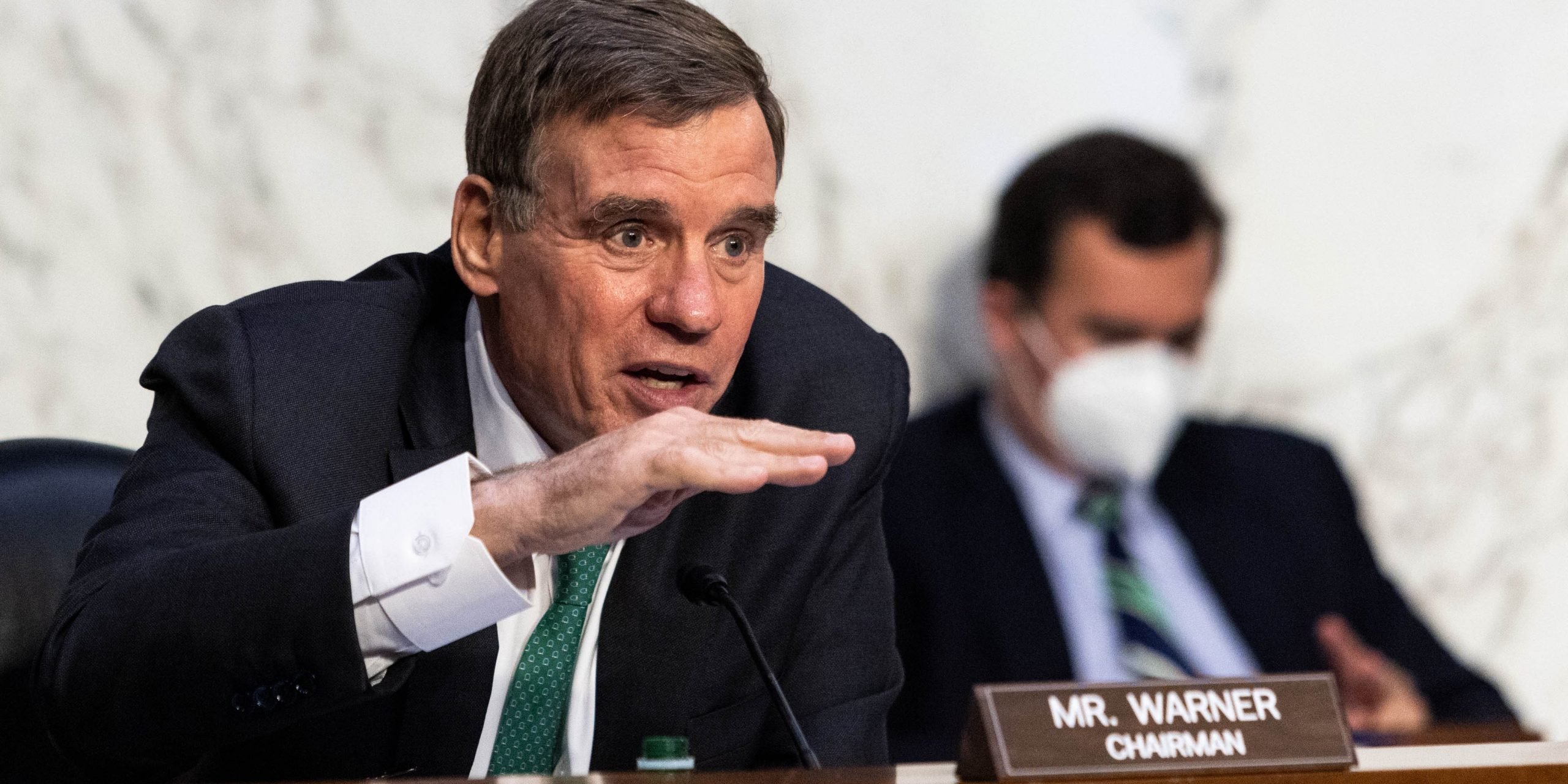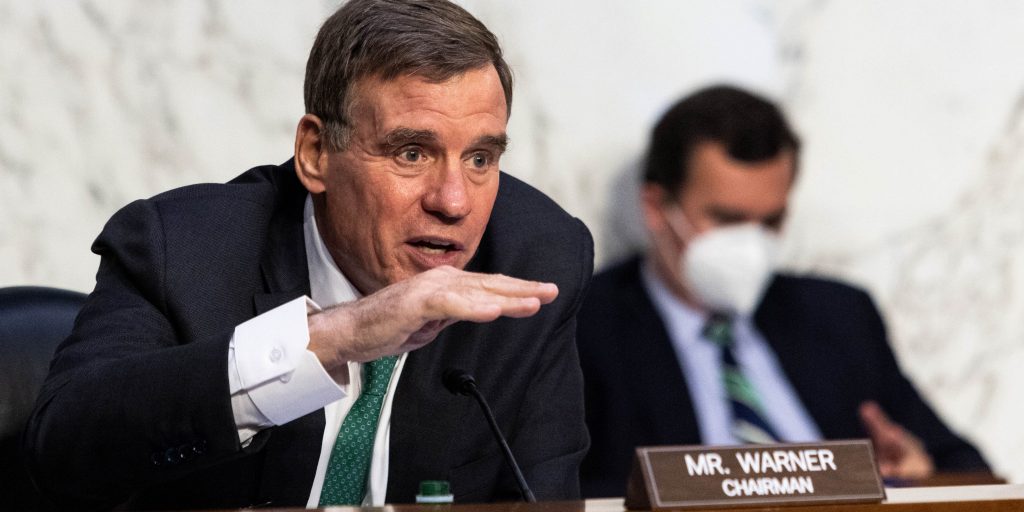
Graeme Jennings-Pool/Getty Images
- Moderate Democrats are eyeing bulking up the IRS to finance infrastructure as bipartisan talks continue.
- "I think there's lots of documentation on the tax gap issue," Mark Warner said in an interview.
- Another Democratic senator said extra money for the IRS was "a good possibility" in the nascent blueprint.
- See more stories on Insider's business page.
A bipartisan gang of 21 lawmakers is in fluid negotiations over a $1 trillion infrastructure plan, with the crucial difference being how to pay for some of it. Some moderate Democrats in the group are leaning in a certain direction on revenue: strengthening the IRS' ability to pursue tax evaders.
A pair of the group's last financing ideas, indexing the gas tax to inflation and charging drivers of electric vehicles, was thrown out by the White House on Monday. Top officials called them a violation of President Joe Biden's pledge to shield households earning below 400,000 from new taxes.
As the working group scrambled for new sources of revenue to cover its plan, which is focused on core infrastructure like roads and bridges, the idea of beefing up the IRS has gained steam.
"I think there's lots of documentation on the tax gap issue," Warner said in an interview with Insider. "It's not linear, but the more you put into the IRS, the better enforcement – that number could go as high as $700 billion."
He went on: "I do think there's an awful lot of evidence that we've had not the most effective enforcement over the last few years, particularly under the last administration."
Sen. Rob Portman of Ohio, a Republican negotiator, said last week the deal would include around $40 billion for the IRS, which has undergone a decade of GOP-led funding cuts that have weakened the agency's ability to gather taxes from very wealthy Americans.
Sen. Angus King of Maine, another member of the group, told Insider beefing up the IRS is among "the clearest opportunities" for new infrastructure revenue. He's co-sponsored a bill to reinvigorate the IRS with $80 billion in new funding to pursue wealthy tax evaders - the same level that Biden put forward in May.
"That's found money," he said. "But the trick is what will CBO score. It's not a question of how much money we put in for enforcement, it's what the CBO scores."
Sen. John Hickenlooper of Colorado told Insider that extra money for the IRS was "a good possibility."
"There are lots of different ideas out there," he said about the negotiations. Other proposed measures for infrastructure financing include repurposed stimulus money, a step the Biden administration has signaled it doesn't support.
The nonpartisan Congressional Budget Office (CBO) said in a report last year that $40 billion in IRS funding would collect $103 billion in total tax dollars, or $63 billion in new federal revenue.
Other analysts are skeptical of the administration's projection that their tax proposals directed at wealthy Americans would draw $700 billion over a decade. The Penn Wharton Budget Model estimated the administration's tax plans would instead generate $480 billion in new revenue over ten years.
Warner told reporters he believed the group was close to unveiling their proposal this week.
"I think it is overall very settled," Warner said. "We want to get the details right."

